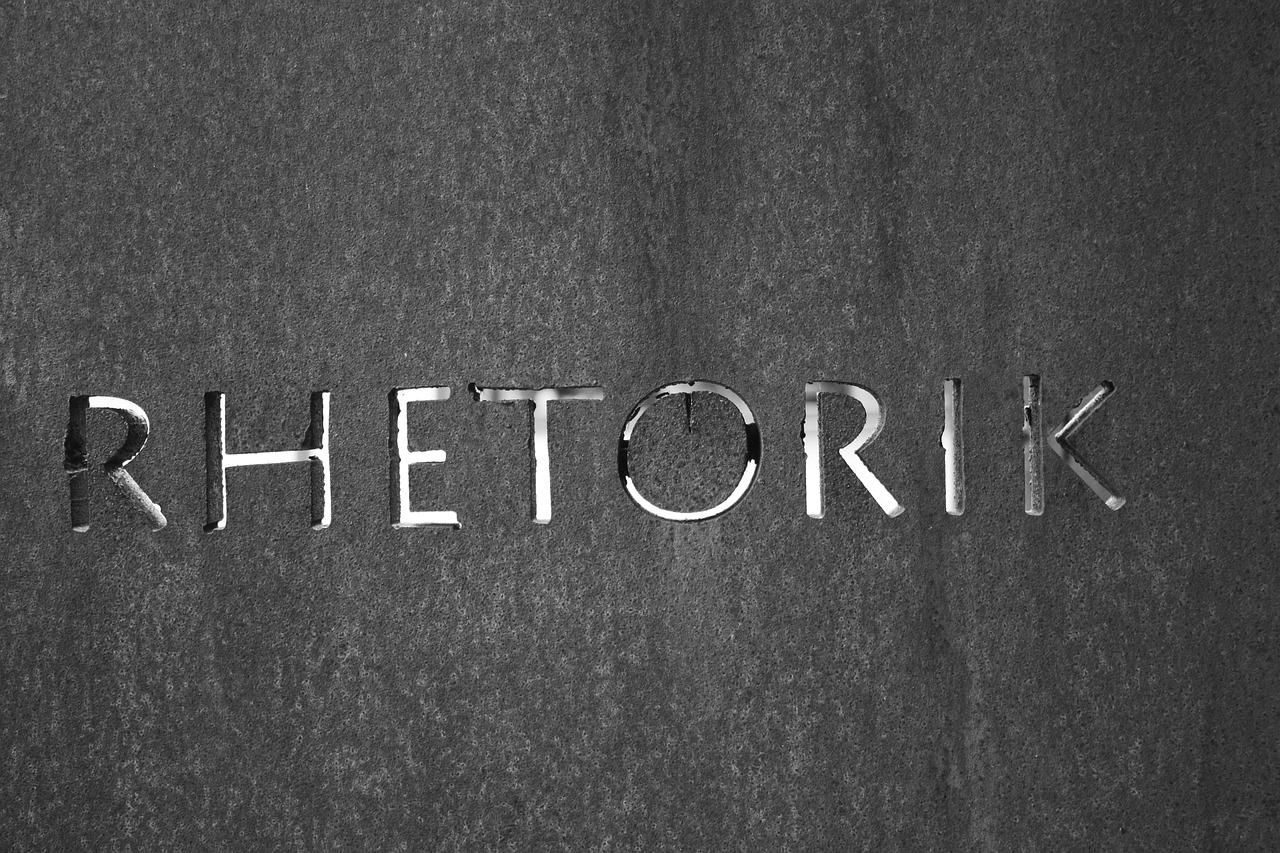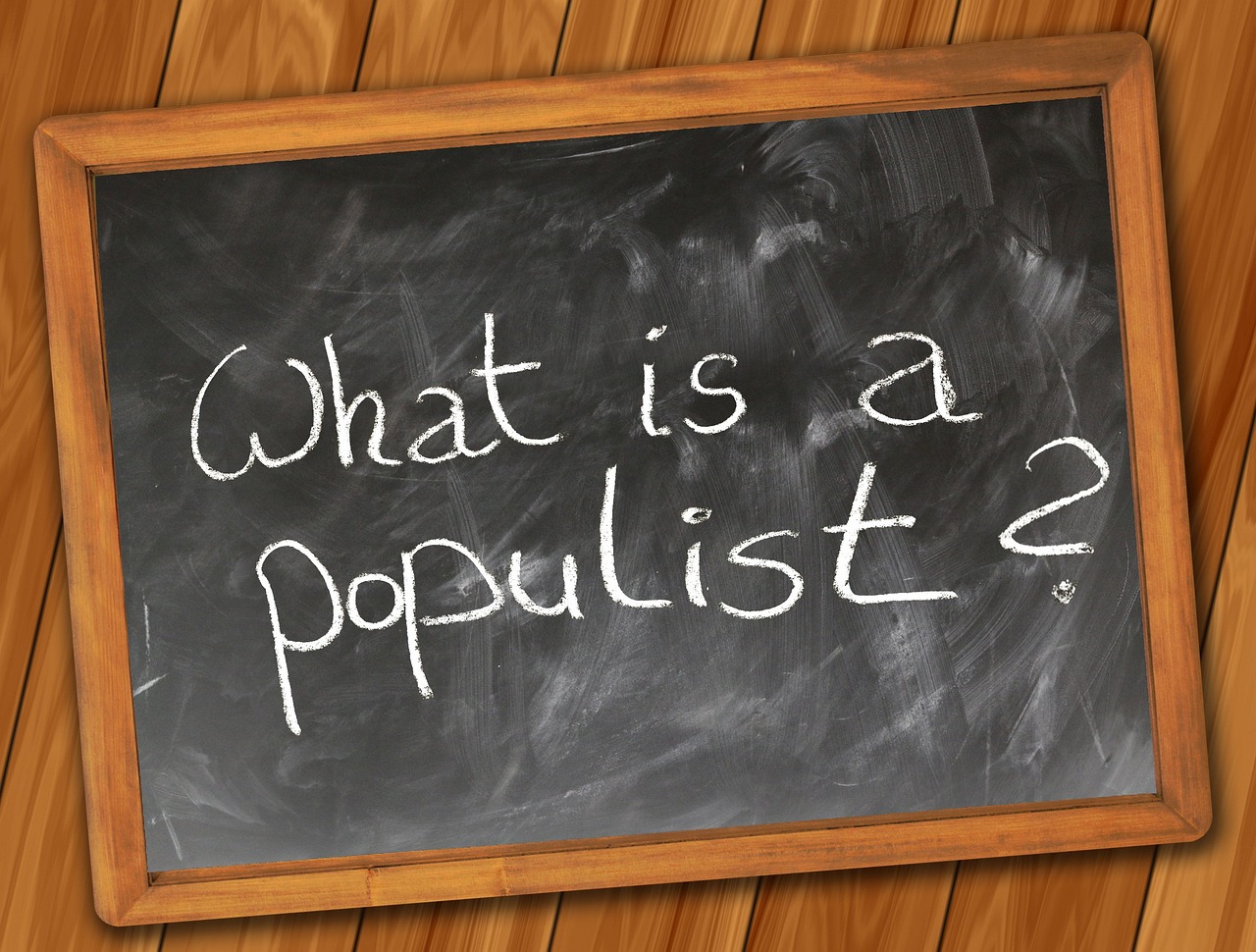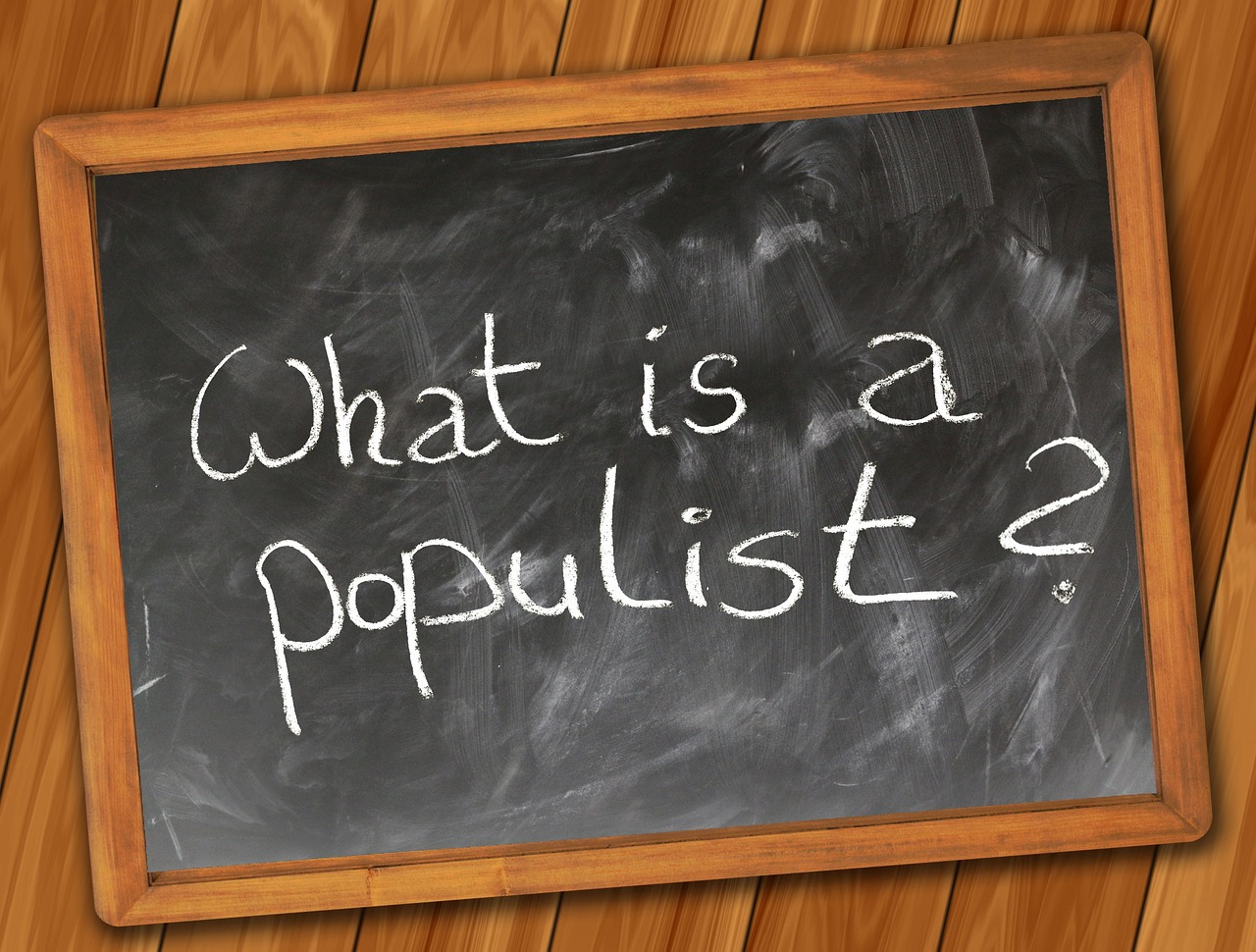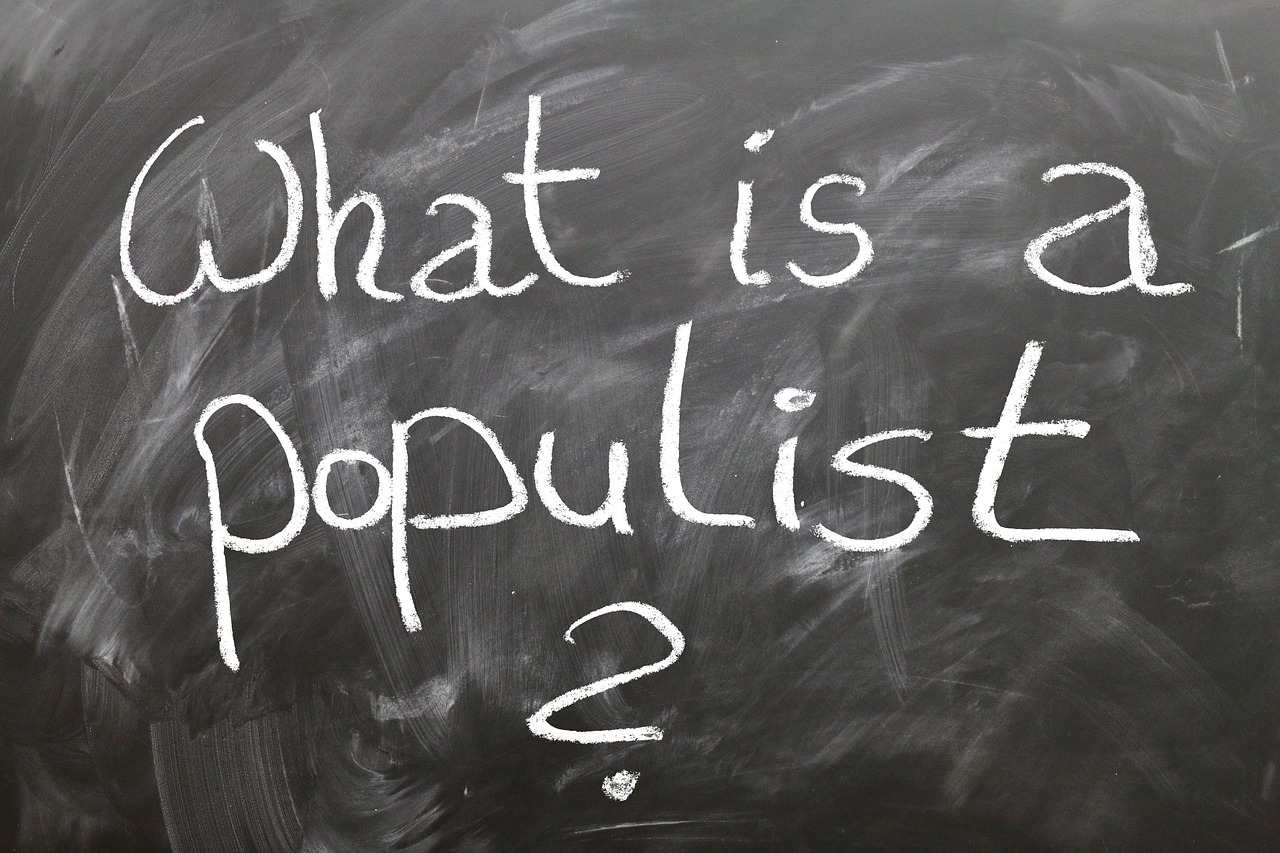Exploring Gorgias, Plato, and the Nature of Rhetoric
Welcome to a fascinating journey through the realms of philosophy and rhetoric! In this article, we will dive deep into the thoughts of two titans of ancient philosophy: Gorgias and Plato. Their ideas not only shaped the way we understand rhetoric but also influenced communication and ethics throughout history. Have you ever wondered how the art of persuasion can sway opinions and alter perceptions? Well, buckle up, because we’re about to explore these profound concepts!
At the heart of this exploration is the question of what rhetoric truly is. Is it merely a tool for persuasion, or is it something more? Gorgias, a prominent Sophist, believed that rhetoric was indeed a powerful instrument capable of influencing thoughts and actions. He argued that the effectiveness of language can shape our beliefs and realities. On the flip side, we have Plato, who offers a critical lens on rhetoric, suggesting that it can sometimes lead us away from the truth rather than guiding us towards it. This clash of perspectives raises important questions about the nature of communication and the ethical responsibilities of those who wield the power of speech.
As we navigate through their contrasting views, we will also examine the implications these philosophies have on modern rhetoric. How do their ideas resonate in today’s world of politics, advertising, and public discourse? The answers may surprise you! From understanding the audience's role to the ethical considerations that come into play, the legacies of Gorgias and Plato continue to influence how we communicate.
So, are you ready to unpack the rich tapestry of ideas woven by these philosophers? Let’s dive deeper into the nuances of their arguments and discover how their insights remain relevant in our quest for effective and responsible communication.
- What is the main difference between Gorgias and Plato's views on rhetoric?
Gorgias sees rhetoric as a powerful tool for persuasion, while Plato critiques it for potentially leading us away from truth. - How do Gorgias and Plato's ideas influence modern communication?
Their discussions on persuasion and ethics inform contemporary practices in politics, advertising, and public speaking. - Why is ethics important in rhetoric?
Ethics ensures that persuasive communication serves the greater good rather than manipulating or deceiving the audience.

Gorgias: The Sophist's Perspective
Gorgias, one of the most influential Sophists of ancient Greece, held a unique and provocative view on the nature of rhetoric. He argued that rhetoric is not merely a tool for communication, but a powerful instrument for persuasion that can shape reality itself. Gorgias believed that language has the ability to influence thoughts and beliefs, effectively challenging the traditional notions of truth and ethics. For him, the effectiveness of rhetoric lies in its ability to persuade, regardless of the objective truth of the claims being made. This perspective raises fascinating questions about the nature of reality: if our perceptions are shaped by language, can we ever truly know what is real?
In Gorgias' view, the world is a subjective place where truth is not absolute but rather constructed through discourse. He famously stated that "nothing exists," suggesting that our understanding of existence is merely a product of our perceptions and the words we use to describe it. This radical idea challenges the very foundation of philosophical inquiry and invites us to consider how much of our reality is dictated by the narratives we create. Rhetoric, therefore, becomes a means of crafting these narratives, allowing individuals to assert their version of reality over others.
Moreover, Gorgias emphasized the role of the orator as a master of persuasion. He believed that the ability to sway an audience is a skill that can be honed and perfected. In his famous work, "On Non-Existence," Gorgias outlines several key principles that define effective rhetoric:
- Language as Art: Gorgias viewed rhetoric as an art form, where the choice of words and style can evoke emotions and influence opinions.
- Emotional Appeal: He understood the power of pathos, or emotional appeal, in persuading an audience, suggesting that feelings can often outweigh logical reasoning.
- Audience Awareness: Gorgias recognized that understanding the audience's beliefs and values is crucial for effective persuasion.
However, this perspective also leads to ethical dilemmas. If rhetoric is solely about persuasion, what happens to the truth? Gorgias' ideas challenge us to consider the implications of using rhetoric for manipulation rather than enlightenment. The slippery slope of rhetoric can lead to a society where truth becomes subjective, and the line between fact and fiction blurs. This raises a critical question: should the power of rhetoric be wielded without responsibility? Gorgias seems to suggest that the effectiveness of rhetoric is paramount, but this leaves us pondering the ethical responsibilities of those who practice it.
In conclusion, Gorgias' perspective on rhetoric invites us to reflect on the profound impact of language and persuasion in our lives. His ideas encourage us to think critically about how rhetoric shapes our understanding of truth and reality. As we navigate through a world filled with competing narratives, the challenge lies in discerning the ethical implications of the words we choose and the power we wield through our rhetoric.

Plato's Critique of Rhetoric
When we dive into the philosophical waters of Plato's critique of rhetoric, we find ourselves navigating through a sea of ethical dilemmas and intellectual challenges. Plato, through his dialogues, particularly in the Gorgias, presents a compelling argument that rhetoric, while a powerful tool for persuasion, can often lead us astray. He posits that rhetoric is not merely about conveying truth; rather, it can be a means of manipulation, twisting reality to fit the speaker's agenda. Isn't it fascinating how the art of persuasion can sometimes masquerade as a quest for truth?
Plato's skepticism towards rhetoric stems from his belief that it often prioritizes the speaker's ability to persuade over the actual content of what is being communicated. He argues that many orators are more concerned with winning arguments than with uncovering genuine knowledge. In his view, this creates a dangerous landscape where opinions can overshadow truth, leading audiences to accept falsehoods as reality. Imagine a world where the loudest voice dictates what is true—this is the very concern that Plato raises.
One of the central themes in Plato's critique is the ethical dimension of rhetoric. He insists that effective communication should not only aim to persuade but must also align with principles of justice and truth. He challenges us to consider the moral implications of our words and the responsibilities we carry as communicators. To illustrate this point, consider the following table that highlights the key distinctions between rhetoric and philosophy as Plato sees them:
| Aspect | Rhetoric | Philosophy |
|---|---|---|
| Purpose | To persuade | To seek truth |
| Approach | Emphasizes emotional appeal | Relies on rational discourse |
| Outcome | Can lead to manipulation | Aims for enlightenment |
In the Gorgias, we witness Socratic questioning at its finest as Plato dissects the claims made by Gorgias, a renowned sophist. This dialogue serves as a battleground for ideas, where the effectiveness of rhetoric is weighed against the pursuit of truth. Through a series of probing questions, Socrates reveals the potential for rhetoric to deceive, raising critical inquiries about the moral responsibility of the orator. Can one truly justify the use of persuasive language if it leads to the distortion of reality?
Ultimately, Plato's critique of rhetoric serves as a call to action for both speakers and listeners alike. He invites us to engage in a more profound exploration of the words we choose and the intentions behind them. As we navigate our modern landscape filled with persuasive messages—from political speeches to advertising—Plato's insights remain relevant. They remind us to remain vigilant and discerning, ensuring that our communication practices align with ethical standards and contribute positively to society.
- What is the main argument of Plato's critique of rhetoric? Plato argues that rhetoric can manipulate truth rather than reveal it, prioritizing persuasion over genuine knowledge.
- How does Plato differentiate between rhetoric and philosophy? Rhetoric aims to persuade, often using emotional appeal, whereas philosophy seeks truth through rational discourse.
- Why is ethics important in rhetoric according to Plato? Ethics ensures that persuasive speech aligns with truth and justice, preventing manipulation and deception.

The Dialogue of Gorgias
In the Dialogue of Gorgias, Plato skillfully employs the Socratic method to dissect the claims made by Gorgias regarding the nature and purpose of rhetoric. This dialogue is not merely a philosophical debate; it serves as a battleground for contrasting views on the power of persuasive speech and its ethical implications. Gorgias, the celebrated Sophist, asserts that rhetoric is an art that can persuade any audience, regardless of the truth of the content being presented. This assertion raises a pivotal question: Is the ability to persuade synonymous with the ability to convey truth?
Throughout the dialogue, Socrates engages Gorgias in a series of probing questions, revealing the inherent tension between rhetoric as a craft and its potential for deception. As the conversation unfolds, it becomes evident that while Gorgias champions the effectiveness of rhetoric, he struggles to define its ethical boundaries. This lack of clarity leads to a critical examination of whether rhetoric serves the greater good or merely the interests of the speaker.
One of the key moments in the dialogue occurs when Socrates challenges Gorgias to consider the moral responsibility of the rhetorician. Is it ethical to persuade others without a commitment to truth? This question resonates deeply in today’s context, where the lines between persuasion and manipulation often blur. The dialogue ultimately reveals that rhetoric, while powerful, carries with it the weight of ethical responsibility, a theme that continues to echo through the ages.
Moreover, Plato’s portrayal of Gorgias serves as a cautionary tale about the seductive nature of rhetoric. It highlights the potential for rhetoric to be used as a tool for manipulation rather than enlightenment. This brings to light the importance of critical thinking and discernment in both speakers and audiences. The implications of this dialogue extend beyond the realm of philosophy; they challenge us to reflect on our own communication practices and the ethical dimensions of persuasion.
In essence, the Dialogue of Gorgias is not just a discussion about rhetoric but a profound exploration of the relationship between language, truth, and morality. It invites us to consider the responsibilities that come with the power of persuasion and to recognize the potential consequences of our words. As we navigate the complexities of modern communication, the lessons from this dialogue remain as relevant as ever, urging us to strive for integrity in our rhetorical endeavors.
- What is the main argument presented by Gorgias in the dialogue?
Gorgias argues that rhetoric is a powerful tool for persuasion that can influence any audience, regardless of the truth behind the message. - How does Plato critique Gorgias' views on rhetoric?
Plato, through Socratic questioning, challenges Gorgias by highlighting the ethical implications of rhetoric and questioning whether persuasive speech can truly represent truth. - What are the ethical considerations discussed in the dialogue?
The dialogue emphasizes the importance of aligning persuasive speech with truth and justice, raising questions about the moral responsibility of those who wield rhetorical power.

Ethics in Rhetoric
When we dive into the world of rhetoric, we can't ignore the ethical implications that come with it. Rhetoric, at its core, is not just about what we say, but also about how we say it and the impact it has on others. Plato argued that persuasive speech should align with truth and justice, suggesting that the orator has a moral responsibility to their audience. This perspective invites us to ponder: how do we ensure that our words are not merely tools of manipulation but instruments of enlightenment?
In today's fast-paced world, where information is abundant and attention spans are fleeting, the ethical dimensions of rhetoric become even more crucial. The challenge lies in the balance between persuasion and integrity. For instance, consider the following ethical principles that should guide effective rhetoric:
- Honesty: Always strive to present information truthfully. Misleading your audience can lead to a breakdown of trust.
- Respect: Acknowledge differing viewpoints and engage with them thoughtfully. Rhetoric should foster dialogue, not division.
- Responsibility: Understand the potential consequences of your words. Rhetoric can inspire action, but it can also incite harm.
Plato's critique of rhetoric highlights the potential for speech to deceive rather than illuminate. This raises an essential question: can rhetoric ever be truly ethical if its primary goal is persuasion? The answer lies in the intent behind the words. If the speaker's aim is to enlighten and uplift rather than to manipulate, then rhetoric can serve as a powerful force for good.
Moreover, the audience plays a significant role in the ethical landscape of rhetoric. They must be discerning, capable of questioning the motives behind persuasive speech. As listeners, we should ask ourselves: Are we being informed or influenced? Are we engaging with the content critically, or are we passively accepting it? This active engagement is vital in ensuring that rhetoric serves a higher purpose.
In essence, the ethics of rhetoric is a delicate dance between persuasion and integrity. It invites us to reflect on our responsibilities as both speakers and listeners. By embracing the ethical dimensions of rhetoric, we can cultivate a communication landscape that values truth and justice, ultimately leading to a more informed and engaged society.

Rhetoric vs. Philosophy
The distinction between rhetoric and philosophy is a cornerstone of Plato's critique and offers a profound insight into the nature of knowledge and persuasion. At its core, rhetoric is often viewed as the art of persuasion, a skill that can sway opinions and influence decisions. On the other hand, philosophy seeks to uncover truth and understand the fundamental principles that govern reality. This dichotomy raises essential questions: Is the goal of communication merely to persuade, or should it also strive to convey truth?
In Plato's dialogues, he emphasizes that while rhetoric can be a powerful tool, it can lead to a slippery slope where the emphasis on persuasion overshadows the pursuit of genuine knowledge. For instance, a skilled orator can craft arguments that sound convincing, yet they may not hold any substantive truth. This leads to a crucial tension: the art of rhetoric may prioritize winning over understanding, creating a conflict between what is perceived as true and what is actually true. In this regard, rhetoric can sometimes resemble a mask—a facade that obscures deeper realities.
To illustrate this distinction further, consider the following table that summarizes key differences between rhetoric and philosophy:
| Aspect | Rhetoric | Philosophy |
|---|---|---|
| Objective | Persuasion | Seeking Truth |
| Method | Emotional Appeal | Logical Reasoning |
| Outcome | Influence Opinions | Understand Reality |
| Ethical Consideration | Often Overlooked | Fundamental |
In this light, Plato argues that while rhetoric can be effective in shaping public opinion, it must be approached with caution. The philosopher's role becomes crucial here; they are tasked with guiding society towards truth rather than mere opinion. This perspective invites a deeper exploration of how rhetoric can be wielded responsibly, ensuring that it aligns with ethical standards and contributes positively to public discourse.
Ultimately, the relationship between rhetoric and philosophy is not merely antagonistic but rather a complex interplay. While rhetoric can serve as a means of communication, philosophy provides the foundation for evaluating the validity of those communications. In a world inundated with information, understanding this distinction is more critical than ever. It challenges us to critically assess the messages we receive and to strive for a deeper understanding of the truths that lie beneath the surface.
- What is the main difference between rhetoric and philosophy? Rhetoric focuses on persuasive communication, while philosophy seeks to uncover and understand the truth behind concepts and ideas.
- Why is ethics important in rhetoric? Ethics ensures that persuasive techniques do not manipulate or deceive the audience, promoting responsible communication.
- How can rhetoric be used responsibly? By aligning persuasive efforts with truth and justice, rhetoric can foster meaningful dialogue and understanding.

The Role of the Audience
The role of the audience in rhetoric is akin to the role of the canvas for a painter; without it, the artwork remains unseen and unappreciated. Both Gorgias and Plato recognized that the audience is not merely a passive recipient of information but an active participant in the rhetorical process. The effectiveness of any rhetorical endeavor hinges significantly on the audience's perceptions, beliefs, and emotional states. This dynamic relationship between the speaker and the audience shapes the outcome of the communication, creating a complex interplay that can either elevate or diminish the impact of the message.
Understanding the audience involves more than just knowing their demographics; it requires a deep dive into their values, motivations, and expectations. For instance, consider a political speech. A speaker addressing a crowd of young voters may emphasize different themes than if they were speaking to an audience of seasoned professionals. This tailored approach can be the difference between a standing ovation and a tepid response. Thus, effective rhetoricians must engage in what can be termed as 'audience analysis,' which involves:
- Identifying Audience Characteristics: Age, gender, cultural background, and education level can influence how a message is received.
- Understanding Audience Values: What does the audience care about? Their values will guide their interpretation of the rhetoric.
- Anticipating Audience Reactions: A skilled speaker can predict how the audience might respond to certain arguments or emotional appeals.
Moreover, the audience's role extends beyond mere reception; they actively interpret and reevaluate the message based on their own experiences and beliefs. This is where the concept of 'feedback' comes into play. Just as a musician listens to the crowd's reaction to adjust their performance, a speaker must be attuned to the audience's non-verbal cues—like nods, frowns, or even silence—to gauge the effectiveness of their rhetoric. This feedback loop is crucial, as it can guide the speaker in real-time, allowing them to adapt their argument or delivery to better resonate with their listeners.
In the grand scheme of communication, the audience serves as both the mirror and the lens through which rhetoric is viewed. Their interpretations can amplify the message or distort it entirely. Thus, the ethical implications of this relationship cannot be overlooked. Speakers hold a responsibility to ensure that their rhetoric aligns with truth and justice, considering how their words will be received and the potential impact on the audience's beliefs and actions.
As we navigate through the complexities of modern communication, it becomes increasingly clear that the audience is not just a backdrop for rhetoric but a vital component that shapes the very fabric of persuasive discourse. In this light, understanding the audience is not merely an option; it is an essential skill for anyone looking to communicate effectively and ethically in our interconnected world.
- Why is audience analysis important in rhetoric? Audience analysis allows a speaker to tailor their message to resonate more effectively with their listeners, enhancing the overall impact of their rhetoric.
- How can speakers gauge audience reactions? Speakers can observe non-verbal cues such as body language, facial expressions, and even the level of engagement to understand how their message is being received.
- What ethical considerations should speakers keep in mind regarding their audience? Speakers should ensure that their rhetoric aligns with truth and justice, avoiding manipulation and considering the potential impact of their words on the audience's beliefs and actions.

Influence on Modern Rhetoric
The philosophical insights of Gorgias and Plato have left an indelible mark on the landscape of modern rhetoric. Their explorations of persuasion and ethics are not merely relics of ancient thought but are vibrant threads woven into the fabric of contemporary communication. In today's world, where information flows as rapidly as a river, understanding the nuances of rhetoric is more crucial than ever. Have you ever wondered why some speeches resonate while others fall flat? The answer often lies in the rhetorical strategies employed by the speaker, many of which can be traced back to the teachings of these great philosophers.
Modern rhetoric is a rich tapestry that incorporates classical techniques while adapting to the needs of current audiences. For instance, politicians often utilize rhetorical devices such as anaphora (the repetition of a word or phrase at the beginning of successive clauses) to create a sense of urgency and connection with their listeners. Think about famous speeches that have moved nations; they often leverage these timeless strategies to evoke emotions and inspire action.
Moreover, the ethical considerations that Plato championed remain pertinent today. Rhetoric is a double-edged sword; it can be used to uplift and inform or to deceive and manipulate. As we navigate the complexities of modern communication—be it through social media, advertising, or public speaking—the responsibility to wield rhetoric ethically is paramount. This is where the teachings of Gorgias and Plato come into play, reminding us that while the art of persuasion is powerful, it must be anchored in truth and integrity.
To illustrate the evolution of rhetorical practices, consider the following table that contrasts classical and modern rhetorical strategies:
| Classical Rhetoric | Modern Rhetoric |
|---|---|
| Focus on ethos, pathos, and logos | Incorporation of digital platforms and social media |
| Emphasis on oratory skills | Use of visual aids and multimedia |
| Structured speeches | Interactive dialogue and audience engagement |
As we reflect on the ongoing influence of Gorgias and Plato, it becomes clear that their ideas prompt us to ask critical questions about the nature of our communication. Are we merely persuading, or are we also enlightening? Are we prioritizing style over substance? The answers to these questions will shape the future of rhetoric and its role in society.
- What is the main difference between Gorgias and Plato's views on rhetoric? Gorgias sees rhetoric as a powerful tool for persuasion, while Plato critiques it as potentially manipulative and deceptive.
- How do Gorgias and Plato influence modern communication? Their discussions on ethics and persuasion inform contemporary practices in politics, advertising, and public speaking.
- Why are ethical considerations important in rhetoric? Ethical considerations ensure that communication serves the greater good and avoids manipulation or deceit.

Rhetorical Strategies Today
In today's fast-paced world, the art of rhetoric has evolved yet remains rooted in the foundational principles laid down by thinkers like Gorgias and Plato. Modern rhetoric is not just about speaking well; it's about connecting with an audience, understanding their needs, and effectively delivering a message that resonates. Whether in politics, advertising, or public speaking, rhetorical strategies have become increasingly sophisticated, leveraging technology and psychology to enhance persuasion.
One of the most significant shifts in rhetorical strategies today is the use of digital platforms. With the rise of social media, speakers and marketers now have the ability to reach vast audiences instantly. This shift has led to the emergence of new techniques that blend traditional rhetoric with modern communication practices. For example, the use of visual rhetoric—incorporating images, videos, and graphics—has become a critical component in capturing attention and conveying messages effectively. Just as a painter uses colors to evoke emotions, modern communicators employ visuals to enhance their rhetoric.
Moreover, the importance of storytelling in rhetoric cannot be overstated. Stories have an unparalleled ability to engage audiences on an emotional level, making complex ideas more relatable and memorable. In fact, many successful campaigns today utilize narrative structures to frame their messages. Consider the following elements that contribute to effective storytelling in rhetoric:
- Character Development: Creating relatable characters that resonate with the audience.
- Conflict: Presenting challenges that the characters must overcome, which adds tension and interest.
- Resolution: Providing a satisfying conclusion that ties everything together and reinforces the message.
Additionally, the concept of audience analysis has gained prominence in modern rhetoric. Understanding the demographics, values, and beliefs of an audience is crucial for tailoring messages that will persuade effectively. This practice involves not just speaking to an audience, but engaging them, inviting participation, and fostering a dialogue. A speaker who can adapt their rhetoric to suit the audience's preferences is often more successful in achieving their persuasive goals.
Finally, as we navigate the complexities of contemporary communication, ethical considerations remain at the forefront of rhetorical strategies. The challenge lies in balancing persuasive techniques with integrity. Today, audiences are increasingly aware of manipulative tactics, and they value authenticity. Thus, successful rhetoric must not only aim to persuade but also to build trust and credibility. This balance is essential in ensuring that communication serves the greater good rather than veering into the realm of deceit.
- What are the key components of effective rhetorical strategies today?
Effective rhetorical strategies include understanding the audience, employing storytelling, utilizing digital platforms, and maintaining ethical integrity in communication. - How has technology impacted modern rhetoric?
Technology has expanded the reach of rhetorical messages and introduced new mediums, such as social media and visual content, which enhance engagement and persuasion. - Why is audience analysis important in rhetoric?
Audience analysis helps tailor messages to resonate with specific groups, increasing the chances of effective persuasion and engagement.

Ethical Considerations in Modern Rhetoric
As we navigate through the complex landscape of modern communication, the ethical considerations surrounding rhetoric have never been more critical. In a world saturated with information, the power of persuasive language can easily sway public opinion, shape societal norms, and even influence political landscapes. This brings us to a pivotal question: how do we ensure that our rhetorical practices remain anchored in integrity rather than manipulation?
One of the most pressing issues in contemporary rhetoric is the balance between persuasion and honesty. As communicators, we often find ourselves at a crossroads where the desire to persuade can clash with the obligation to present the truth. For instance, in advertising, companies may utilize persuasive techniques that border on deception to sell their products. This raises ethical dilemmas about the fine line between effective marketing and misleading consumers.
Moreover, the rise of social media has amplified these ethical concerns. With platforms that allow for rapid dissemination of information, the potential for misinformation and manipulation is alarmingly high. Rhetoric in this digital age can be a double-edged sword; it can inform and educate, or it can deceive and mislead. Therefore, it's essential for modern rhetoricians to prioritize ethical guidelines in their communication strategies.
To navigate these challenges, several key ethical principles can guide modern rhetoric:
- Transparency: Being open about the intentions behind the message can build trust with the audience.
- Accountability: Rhetoricians should take responsibility for the impact their words have on society.
- Respect for the Audience: Understanding the audience's perspective and treating them with dignity is crucial in ethical communication.
Ultimately, the goal of rhetoric should not merely be to win an argument or persuade an audience at any cost. Instead, it should strive to elevate the discourse and contribute positively to society. By adhering to ethical practices, communicators can foster a more informed and engaged public, encouraging dialogue that is both meaningful and constructive.
As we reflect on the teachings of Gorgias and Plato, it becomes increasingly clear that the responsibility of a rhetorician extends beyond the art of persuasion. It involves a commitment to truthfulness and a dedication to using language as a tool for enlightenment rather than deception. In this way, we can honor the rich history of rhetoric while paving the way for a more ethical future.
- What is the importance of ethics in rhetoric?
Ethics in rhetoric ensures that communication is truthful and respects the audience, fostering trust and constructive dialogue. - How can one balance persuasion and honesty?
By prioritizing transparency, accountability, and respect for the audience, communicators can effectively persuade without compromising truth. - What role does social media play in modern rhetoric?
Social media amplifies the reach of rhetorical messages but also increases the risk of misinformation, making ethical considerations even more crucial.
Frequently Asked Questions
- What is the main argument presented by Gorgias regarding rhetoric?
Gorgias argues that rhetoric is a powerful tool for persuasion, emphasizing that reality is subjective and shaped by language. He challenges traditional notions of truth, suggesting that the effectiveness of rhetoric lies in its ability to influence beliefs and perceptions.
- How does Plato critique Gorgias' perspective on rhetoric?
Plato critiques Gorgias by suggesting that rhetoric can manipulate truth rather than reveal it. Through his dialogues, he explores the ethical implications of persuasive speech, emphasizing that rhetoric should align with truth and justice, rather than mere persuasion.
- What is the significance of the dialogue of Gorgias in Plato's work?
The dialogue of Gorgias serves as a platform for Socratic questioning, allowing Plato to dissect Gorgias' claims about rhetoric. This conversation highlights the tension between rhetoric as an art form and its potential to deceive, raising important questions about moral responsibility in communication.
- What role does ethics play in rhetoric according to Plato?
Plato emphasizes that ethics is crucial in rhetoric. He argues that persuasive speech should be grounded in truth and justice, inviting a deeper exploration of the moral implications of rhetoric in society and the responsibilities of the speaker.
- How do Gorgias and Plato view the role of the audience in rhetoric?
Both philosophers acknowledge the audience's critical role in rhetoric. They highlight that understanding audience perception is essential for effective persuasion, emphasizing the dynamic relationship between the speaker, the message, and the listener.
- How have Gorgias and Plato influenced modern rhetoric?
The ideas of Gorgias and Plato continue to shape contemporary rhetoric, particularly in discussions about persuasion, ethics, and the nature of truth. Their insights inform modern communication practices, stressing the importance of responsible rhetoric across various contexts.
- What are some common rhetorical strategies used today?
Modern rhetoric employs classical techniques that resonate with audiences, such as emotional appeals, logical reasoning, and storytelling. Understanding these strategies enhances communication effectiveness in fields like politics, advertising, and public speaking.
- What ethical considerations should be kept in mind in modern rhetoric?
As rhetoric evolves, maintaining ethical integrity is paramount. The challenge lies in balancing persuasive techniques with honesty, ensuring that communication serves the greater good rather than resorting to manipulation or deceit.



















